Packing Officer
20+ Packing Officer Interview Questions and Answers

Asked in Lupin

Q. Tell me briefly about serialization and track and trace systems.
Serialisation and track and trace system is a method used to uniquely identify and trace products throughout the supply chain.
Serialisation involves assigning a unique serial number or code to each individual product or packaging unit.
Track and trace system uses this serial number to track the movement of products from manufacturing to distribution to the end consumer.
It helps in ensuring product authenticity, preventing counterfeiting, and improving supply chain visibility.
S...read more

Asked in Amazon Development Centre India

Q. A 2x2 wooden box is filled with 1x1 pieces. How many pieces are in the box?
The 2x2 wooden box can hold 4 pieces of 1x1 size.
A 2x2 wooden box has 4 square units of space.
Each 1x1 piece occupies 1 square unit of space.
Therefore, the box can hold 4 pieces.
Packing Officer Interview Questions and Answers for Freshers

Asked in Sun Pharmaceutical Industries

Q. What is deviation, data integrity, and how to resolve deviation.
Deviation is a departure from an approved instruction or standard. Data integrity is the accuracy and completeness of data.
Deviation is a non-conformance to a standard or procedure.
Data integrity ensures that data is accurate, complete, and consistent.
To resolve deviation, identify the root cause, implement corrective actions, and prevent recurrence.
Examples of deviation include a product failing to meet specifications or a process not being followed correctly.
Examples of dat...read more

Asked in Lupin

Q. Which type of foil is used during primary packing?
The type of foil used during primary packing varies depending on the product and its requirements.
Aluminum foil is commonly used for primary packing in the food industry.
Blister packs in the pharmaceutical industry often use PVC or PVDC coated foil.
In the medical field, sterile barrier systems may use Tyvek or other specialized foils.
Different types of foils may be used for different purposes, such as moisture resistance or heat sealing.
The choice of foil depends on factors l...read more

Asked in Sun Pharmaceutical Industries

Q. What is aggregation system and what is GTIN.
Aggregation system is a process of grouping individual items into a larger unit. GTIN is a unique identifier for products.
Aggregation system helps in tracking and managing inventory efficiently.
GTIN stands for Global Trade Item Number.
GTIN is a 14-digit number used to identify products.
GTIN can be found on the product packaging or barcode.
Different types of GTINs include GTIN-8, GTIN-12, GTIN-13, and GTIN-14.

Asked in Sun Pharmaceutical Industries

Q. Activity flow of packing activity.
The packing activity flow involves receiving the items, inspecting them, selecting the appropriate packaging, packing the items, labeling the packages, and storing them.
Receive items to be packed
Inspect items for any damage or defects
Select appropriate packaging materials
Pack items securely and efficiently
Label packages with necessary information
Store packages in designated area
Packing Officer Jobs
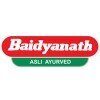

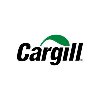

Asked in Shankar Packagings

Q. What do you do when there is a technical issue with a product's quality?
I investigate technical issues in product quality by analyzing data, conducting tests, and collaborating with production teams.
Analyze data to identify root causes of quality issues
Conduct tests to determine the impact of technical issues on product quality
Collaborate with production teams to implement corrective actions
Document findings and recommendations for future reference

Asked in Shankar Packagings

Q. What is your experience with product management processes?
Product management processes involve identifying market needs, developing products, and managing their lifecycle.
Identifying market needs through market research and customer feedback
Developing products based on market requirements and company goals
Managing product lifecycle including launch, growth, maturity, and decline stages
Collaborating with cross-functional teams such as marketing, sales, and engineering
Iterating on products based on feedback and data analysis
Share interview questions and help millions of jobseekers 🌟

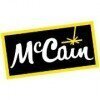
Asked in McCain Foods

Q. What is the efficiency of packing machines?
Packing machine efficiency measures productivity, speed, and accuracy in packaging processes, impacting overall operational effectiveness.
Efficiency is often measured in units per hour; for example, a machine may pack 500 units/hour.
Factors affecting efficiency include machine speed, downtime, and operator skill.
Regular maintenance can improve efficiency; for instance, a well-maintained machine may operate 10% faster.
Automation can enhance efficiency; automated machines can r...read more

Asked in McCain Foods

Q. What is the process of food product processing?
Food product processing involves transforming raw ingredients into consumable products through various methods.
1. Raw Material Selection: Choosing high-quality ingredients, e.g., fresh fruits for juice production.
2. Cleaning and Preparation: Washing and cutting ingredients, like peeling potatoes for chips.
3. Cooking or Processing: Applying heat or other methods, e.g., baking bread or pasteurizing milk.
4. Packaging: Sealing products in suitable materials to ensure freshness, l...read more
Asked in Reo Ranjan Tech

Q. Why do you want to work at our company?
I admire your company's commitment to quality and innovation in packaging, which aligns with my professional values and aspirations.
Your company is known for its sustainable packaging solutions, which I am passionate about.
I appreciate your focus on innovation, as seen in your recent product launches that have set industry standards.
The collaborative work culture you promote is something I thrive in, as I believe teamwork drives success.
I am impressed by your commitment to em...read more
Asked in Gulbrandsen Technologies

Q. Is CAPA a corrective tool for RCA?
Yes
CAPA stands for Corrective and Preventive Actions.
CAPA is a tool used for Root Cause Analysis (RCA) to identify and address the underlying causes of problems or non-conformities.
RCA is a systematic process used to determine the root cause(s) of an issue or problem.
CAPA helps in implementing corrective actions to address the identified root causes and prevent their recurrence.
Examples of CAPA tools include fishbone diagrams, 5 Whys analysis, and Pareto charts.
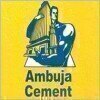
Asked in Ambuja Cements

Q. How do you handle manpower?
Manpower should be handled with proper planning, communication, and motivation.
Create a clear plan and communicate it effectively to the team
Provide necessary resources and training to ensure success
Motivate and incentivize the team to achieve goals
Regularly evaluate and adjust the plan as needed
Encourage open communication and feedback from the team
Address any issues or conflicts promptly and professionally
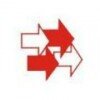
Asked in Flamingo Pharmaceuticals

Q. Types of packing
Types of packing include primary, secondary, and tertiary packaging.
Primary packaging is the first layer of packaging that comes into direct contact with the product, such as a bottle or blister pack.
Secondary packaging is used to group primary packages together, such as a box or shrink wrap.
Tertiary packaging is used for transportation and storage, such as pallets or containers.
Other types of packing include aseptic packaging, vacuum packaging, and modified atmosphere packag...read more

Asked in Amazon

Q. What are the important details in packing?
Packing details refer to the specific information and instructions regarding the packaging of products or items.
Packing details include the type of packaging material to be used, such as boxes, bubble wrap, or pallets.
It also includes the dimensions and weight restrictions for the packaging.
Instructions on how to properly secure and protect the items during transportation are part of the packing details.
Packing details may also include labeling requirements, such as product n...read more

Asked in SAP

Q. How will you manage pressure?
I manage pressure by staying organized, prioritizing tasks, and maintaining a positive mindset to ensure efficiency and effectiveness.
Stay organized: Use checklists to track tasks and deadlines, ensuring nothing is overlooked.
Prioritize tasks: Identify urgent tasks and tackle them first, like handling high-priority shipments.
Maintain a positive mindset: Practice mindfulness techniques to stay calm and focused under pressure.
Seek support: Collaborate with team members during p...read more

Asked in Zydus Lifesciences

Q. Types of granulation
Granulation is the process of forming grains or granules from a powdery or solid substance.
Dry granulation
Wet granulation
Direct compression
Roller compaction
Spray drying
Fluid bed granulation

Asked in Sun Pharmaceutical Industries

Q. MOC of container
MOC of container refers to the material of construction used for the container.
MOC of container can vary depending on the type of product being stored or transported.
Common materials used for containers include steel, aluminum, plastic, and glass.
The MOC should be compatible with the contents of the container to prevent contamination or damage.
Consider factors like durability, weight, and cost when selecting the MOC for a container.

Asked in Axa Parenterals

Q. Route of drugs administration
Route of drug administration refers to the way a drug is introduced into the body for therapeutic effect.
There are various routes of drug administration including oral, intravenous, intramuscular, subcutaneous, transdermal, inhalation, and rectal.
Each route has its own advantages and disadvantages in terms of speed of onset, bioavailability, and patient comfort.
For example, oral administration is convenient but may have variable absorption, while intravenous administration pr...read more

Asked in Axa Parenterals

Q. What is the definition of parenteral?
Parenteral refers to a route of administration that does not involve the digestive tract.
Parenteral administration bypasses the digestive system and delivers medication directly into the bloodstream.
Common parenteral routes include intravenous, intramuscular, and subcutaneous injections.
Parenteral administration is often used for medications that cannot be taken orally or need to be quickly absorbed.
Examples of parenteral medications include vaccines, insulin, and certain ant...read more
Interview Questions of Similar Designations
Interview Experiences of Popular Companies








Reviews
Interviews
Salaries
Users

















